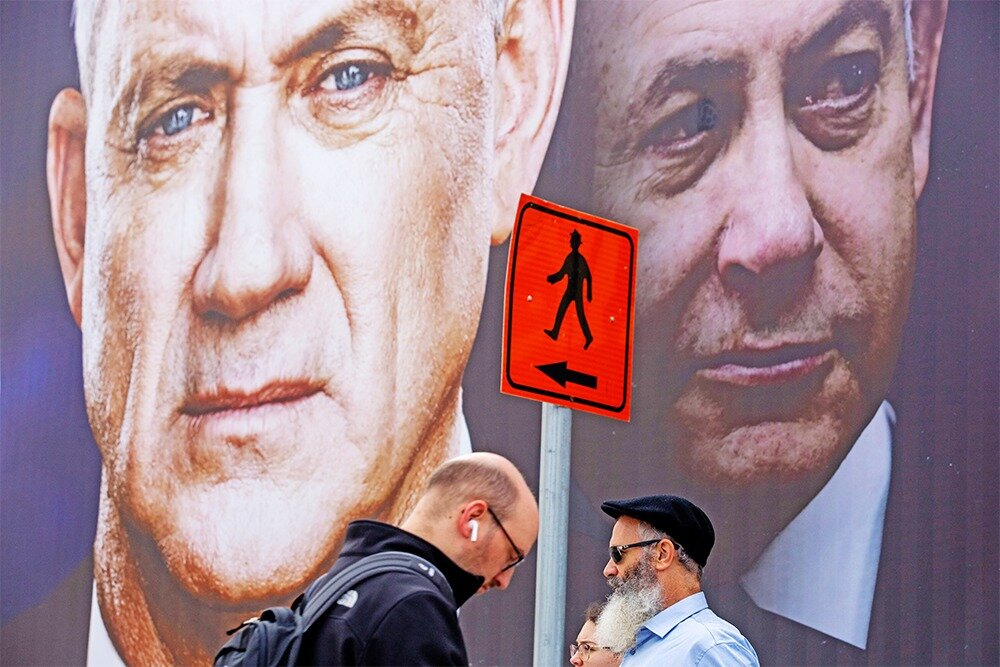The falling Netanyahu takes down a cantankerous political class
TEHRAN – After waging a deadly war on the Gaza Strip in hope of securing another stint as a prime minister in Israel, Benjamin Netanyahu is now grappling with a wave of discontent both at home and abroad.
Netanyahu did everything in his power to cling to power. He authorized an 11-day air raid campaign against Gaza in the midst of internal deliberations on the formation of an Israeli government. He pinned too much hope on the upshot of the war on Gaza, believing that the war will rally all major political parties behind him and make them more receptive to another premiership of his.
This didn’t happen, even as Netanyahu’s rival, Yair Lapid, failed to put together a government by the 28-day mandate set by Israeli President Reuven Rivlin. Lapid is now talking to another rival of Netanyahu, Naftali Bennett, to form a government and spare Israel another inconclusive election in two years.
Israeli media said that a deal between Lapid and Bennet was ready to be signed and the deal gave the latter “everything he asked for.” However, Bennet doesn’t seem to be willing to ink the deal, even though he met with Lapid for the first time since Bennett announced he was pulling out of negotiations with other members of the anti-Netanyahu bloc following an outbreak of ethno-religious violence and the start of the Gaza war on May 10.
“There is a sense that Bennett doesn't want to sign, that he's waiting to see what happens with the other side. They set a deadline to form a government by Monday, and if they can't – they will take immediate action to dissolve the Knesset,” a high-ranking Likud official told Israel Hayom on Friday amid speculations that Bennet would be the next prime minister of Israel.
Over the past two years, Israeli politicians set an example of how crab mentality works by throwing a monkey wrench into each other’s efforts to form a government. They neither succeeded in forming government nor let others do it.
Netanyahu’s blunders and provocative measures against the Palestinians even made the situation worse. They pitted other politicians against him while exposing Israel to a rarely seen international backlash in the wake of the Gaza war. Besides, Netanyahu even destroyed the much-vaunted co-existence between Arabs and Jews inside Israel.
“The prime minister empowered and emboldened Itamar Ben-Gvir and his racist, thuggish followers, who were key in triggering the inter-communal violence,” wrote Jonathan Rynhold, a professor in the Department of Political Studies at Bar-Ilan University, in an article for The Times of Israel. According to Rynhold, Netanyahu bears responsibility for the Jewish-Arab meltdown in Israel because he failed to distinguish between his own personal interests and the interests of Israel.
Since his indictment on charges of bribery and corruption, Netanyahu acts as if his tenancy in the prime minister’s residence on Balfour Street is so critical to the future of Israel that it can justify almost anything, including an unashamed and illegal attempt to appoint a ‘loyal’ minister of justice, the Israeli professor said.
Aside from internal mayhem, Netanyahu is facing a rare international consensus against Israel. The latest rebuke came from the UN Human Rights Council, which decided to launch an open-ended probe of Israeli crimes against the Palestinian people in the Gaza Strip.
On Thursday, a draft resolution calling for an investigation of Israeli crimes against Gaza was passed by 24 to 9 votes, with 14 abstentions.
The resolution, submitted by Pakistan on behalf of the Organization of Islamic Cooperation, decided to establish an “ongoing independent, international commission of inquiry, to be appointed by the President of the Human Rights Council, to investigate in the Occupied Palestinian Territory, including East Jerusalem, and in Israel all alleged violations of international humanitarian law and all alleged violations and abuses of international human rights law leading up to and since 13 April 2021, and all underlying root causes of recurrent tensions, instability and protraction of conflict, including systematic discrimination and repression based on national, ethnic, racial or religious identity.”
On Thursday, Michelle Bachelet, the UN rights chief, said Israeli forces may have committed war crimes during the 11-day war. Bachelet also called on Israel to allow an independent probe of military actions in the latest spasm of deadly violence, according to The Associated Press.
“Air strikes in such densely populated areas resulted in a high level of civilian fatalities and injuries, as well as the widespread destruction of civilian infrastructure,” Bachelet said.
“Such attacks may constitute war crimes,” she added.
As usual, Netanyahu accused the UN Human Rights Council of being obsessed with Israel. “Today's shameful decision is yet another example of the UN Human Rights Council's blatant anti-Israel obsession,” he said on Twitter.


No comments:
Post a Comment